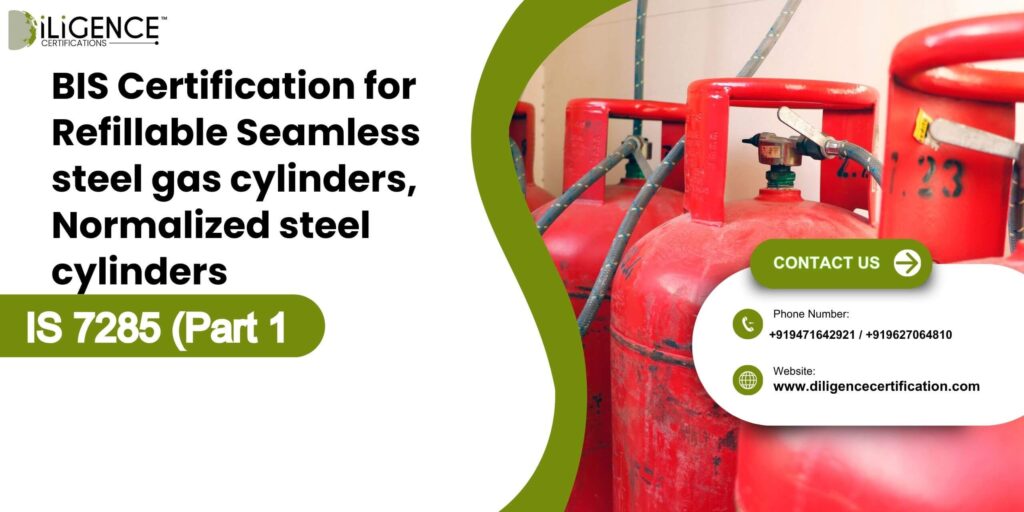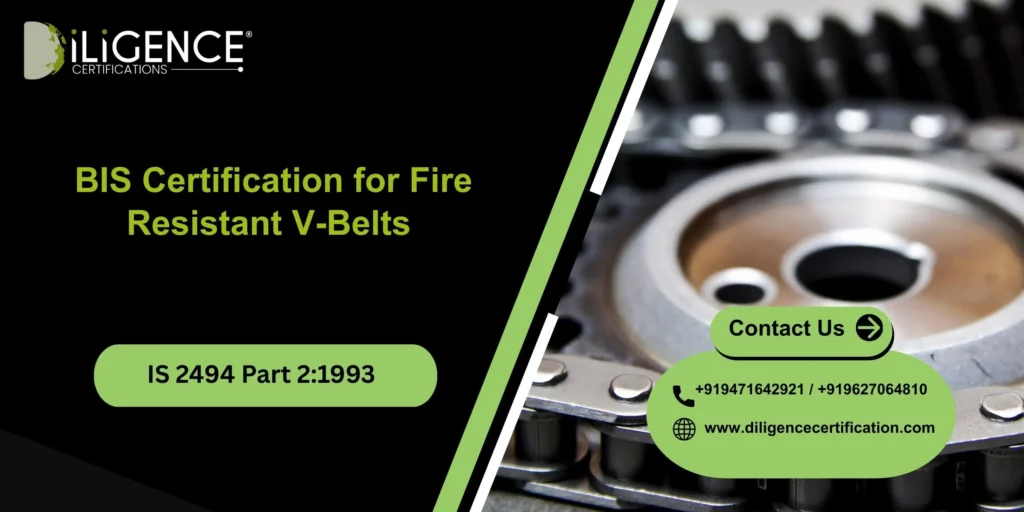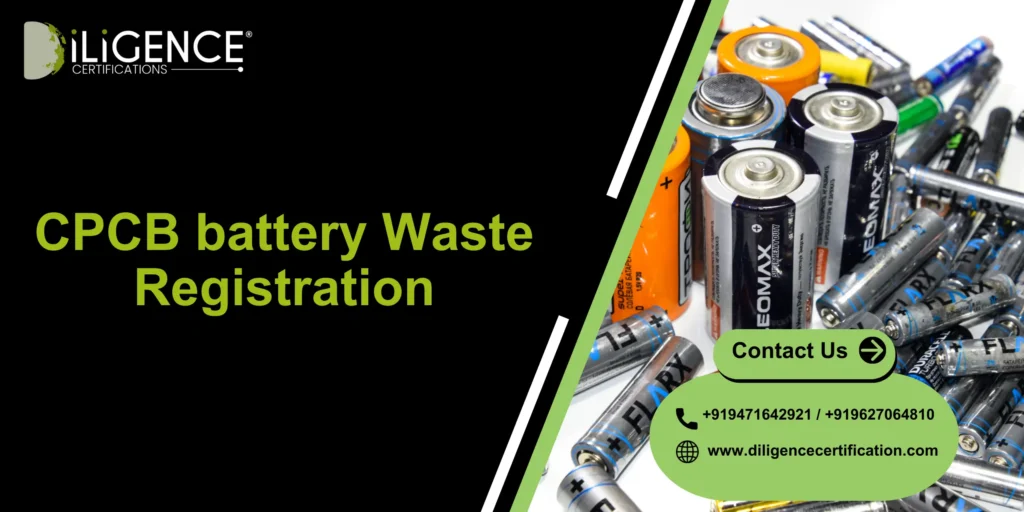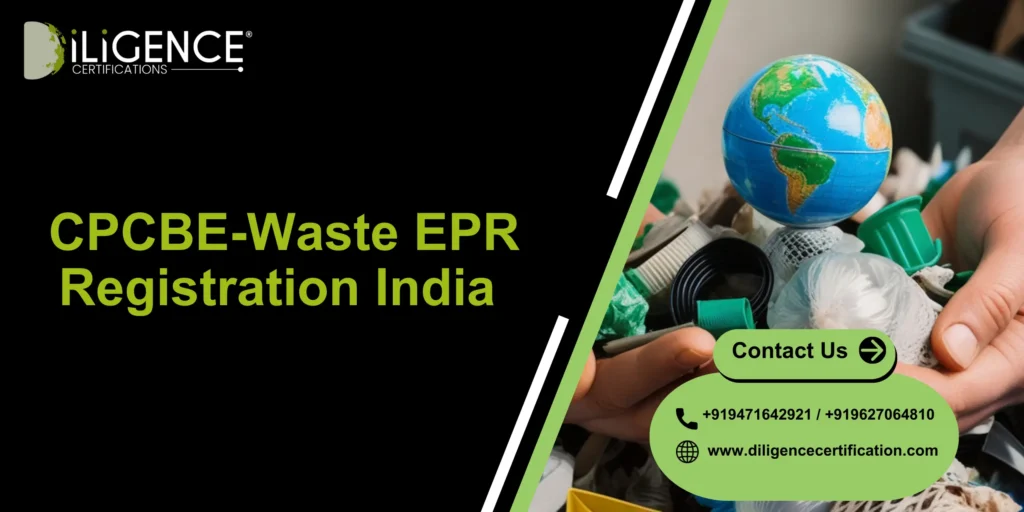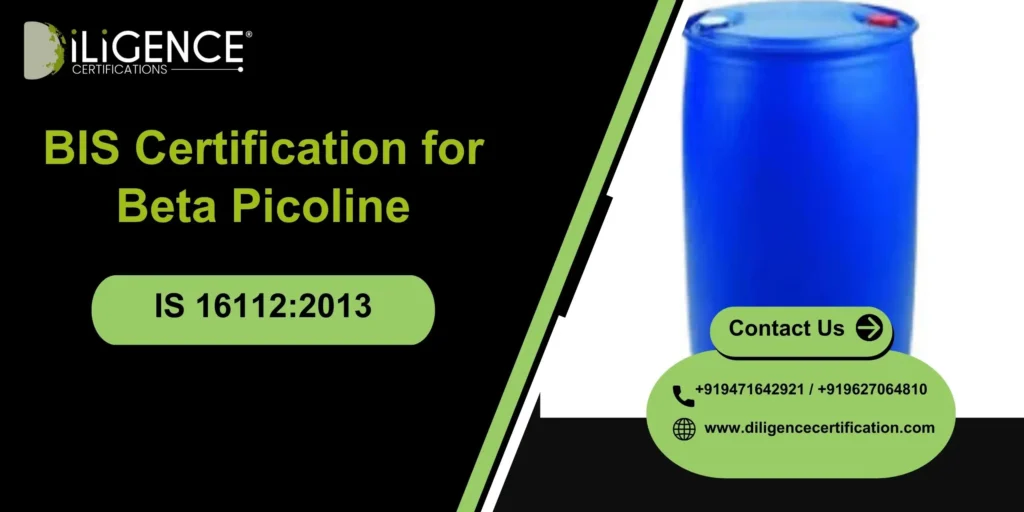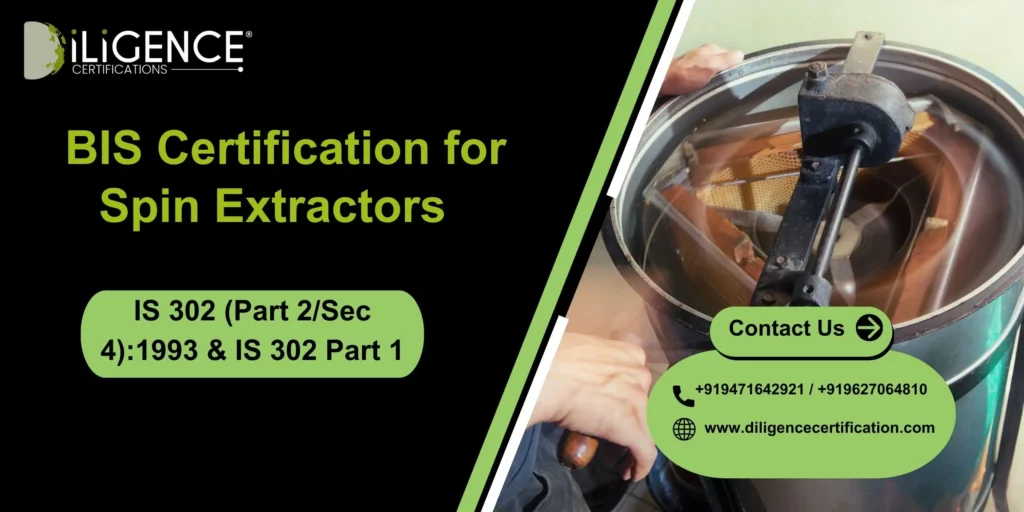- BIS Certification under IS 7285 Part 1 is mandatory in India.
- Applies to Refillable Seamless steel gas cylinders.
- Requires testing and BIS factory inspection.
- Ensures safety and market eligibility.
- Non-compliance leads to penalties and lost business.
Introduction
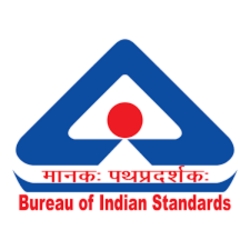
A large industrial gas supplier in Pune once recounted the story of when one of their containers of imported cylinders was stuck at port for a period of weeks. Everything was in order according to global standards, apart from the matter of an elusive requirement. They did not have the BIS Certification for refillable seamless steel gas cylinders normalized steel cylinders under IS 7285 Part 1. The delay in issuing the certification had halted deliveries to hospitals and placed incredible pressure on cash flow.Bureau of Indian Standards
What that provider experienced is commonplace in India’s compliance driven market space. Cylinders are delivered with high pressure gases and there can be no tolerance for any flaws in the material or manufacturing processes. In the event of a failure, the performance and medical safety of the cylinder can be compromised, exposing the manufacturer or importer to commercial risk, legal liabilities, and reputational harm. When manufacturers and importers obtain BIS approvals sooner in the operating cycle, they will avoid the disruption and gain a competitive advantage for their business.
What is IS 7285 Part 1?
IS 7285 Part 1 is the Indian standard regulations regarding safety and manufacturing requirements for reusable seamless steel gas cylinders constructed from normalized steel, which allows the cylinders to safely contain and transport various high-pressure industrial and medical gases.ISI MARK

Key Points
• Applies only to seamless, normalized steel cylinders
• Covers design, wall thickness, and material quality
• Requires strict heat treatment and non-destructive testing
• Mandatory for sale and use in the Indian market
• Compliance supports BIS Certification and legal acceptance
Why BIS Certification Mandatory for Refillable Seamless steel gas cylinders Normalized steel cylinders
BIS Certification for refillable seamless steel gas cylinders (normalized steel) is required in India because it provides safety, legality, market access, documented quality control and brand protection.
Key Points
- Ensures safe manufacture and use of high-pressure seamless steel cylinders.
- Legal requirement under Indian regulations; non-compliance risks penalties.
- Required by major buyers such as industrial gas companies and hospitals.
- Mandates thorough testing, inspection and traceability of the manufacturing process.
- Shields manufacturers/importers from liability and strengthens credibility.
Importance & Benefits of BIS Certification
Importance of BIS Certification
- Mandatory in India for manufacturing and selling seamless normalized steel cylinders.
- Ensures cylinders meet strict national safety and performance standards.
- Prevents accidents and regulatory violations in high-pressure gas handling.
- Aligns factories with audited quality systems and documentation practices.
- Protects businesses from legal penalties and product seizures.
Benefits of BIS Certification
- Access to major buyers such as industrial gas companies and hospitals.
- Strong market credibility with the ISI mark on every cylinder.
- Fewer testing failures and reduced operational risk over time.
- Supports tender participation and large-scale supply contracts.
- Builds trust with customers and simplifies future licence renewals.
Step by Step process of BIS Certification

Step1:Documentation
- Collect required technical and legal documents
- Include product specifications and factory details
- Prepare quality management records
- Ensure all documents are accurate and updated
Step2:Product Testing
- Send samples to a BIS recognized laboratory
- Testing must follow relevant Indian Standards
- Maintain sample traceability during testing
- Obtain complete test reports for submission
Step3:Application Submission
- Apply through the BIS online portal
- Upload all required documents and reports
- Pay necessary certification fees
- Ensure every detail matches the product tested
Step4:Scrutiny and Inspection
- BIS evaluates submitted documents
- On-site factory inspection by BIS officers
- Verify production capability and quality controls
- Correct any non-conformities if identified
Step5:Grant of License
- BIS approves licence after successful evaluation
- Manufacturer is allowed to use the ISI mark
- Licence details linked to the specific product
- Maintain ongoing compliance to retain approval
Documents Required for BIS Certification
| Requirement | Details |
| Company Licence Proof | GST, Factory registration |
| Technical Specifications | Cylinder drawings and design data |
| Material Certificates | Steel grade and mill test reports |
| Quality System Records | QC plan, inspection and heat-treatment records |
| Calibration Certificates | Equipment calibration validity |
| BIS Test Reports | From BIS-approved laboratory |
| Marking Details | ISI mark layout and stamping information |
| Authorized Signatory Proof | ID and authorization letter |
Timelines, Costs, Validity & Renewal
- Timelines: Obtaining BIS endorsement activities through the different stages of testing and inspections requires advance planning from several months prior.
- Costs:The cost of certification is dependent on the complexity of the product involving fees for testing, inspection and marking.
- Validity:BIS licences remain valid for a fixed period and allow legal use of the ISI mark during that duration.
- Renewal:Renewal requires timely submission of updated compliance records to avoid interruption in market access.
Why Choose Diligence Certifications
- Expertise in BIS licensing for high-risk industrial products, including IS 7285 Part 1 gas cylinders
- End-to-end execution covering documentation, testing coordination, and BIS liaison
- Practical guidance from engineers who understand cylinder manufacturing, audits, and safety challenges
- Faster approval timelines through error-free submissions and proactive compliance planning
- Dedicated support through licence validity, surveillance audits, and renewals to protect continuous market access
Conclusion
BIS Certification for refillable seamless steel gas cylinders normalized steel cylinders under IS 7285 Part 1 is more than a statutory requirement. It protects lives, prevents critical failures, and opens the door to India’s regulated industrial and medical gas markets. The approval process demands technical accuracy, tested materials, and a compliant manufacturing setup. When businesses handle these steps with care, they secure long-term access to buyers who insist on ISI-marked cylinders. If your factory is preparing for certification or facing delays, taking expert support early often saves both time and cost. You remain fully accountable for safety, and a strong compliance partner helps you achieve it without complications.
Frequently Ask Questions
Is it necessary for seamless steel gas cylinders to have a BIS Certification in India?
Yes. Any refillable seamless normalized steel cylinder that is sold or used in India must be certified by the BIS in accordance with IS 7285 Part 1.
Who is responsible for applying for this certification?
The manufacturers and importers of cylinders supplying into the industrial, medical or commercial use of gases.
What are some gases typically contained in IS 7285 Part 1 cylinders?
Industrial gases such as oxygen, nitrogen, hydrogen, carbon dioxide, argon and many medical gases.
How long does it typically take to get BIS approved?
As you can imagine, there are lots of compliance steps involved so businesses often plan for getting this certification through a few months before market launch.
Does every cylinder need to bear the ISI mark?
Yes. Every issue certified cylinder that is produced in accordance with the standard must be marked permanently with the ISI mark, with all relevant approvals.
What are some common reasons for delays in getting BIS Certification?
Incorrect documentation, non-conformities during factory inspection, and failing product testing.
Can foreign manufacturers be granted BIS Certification?
Yes. Although the Authorized Indian Representative must be appointed and there will still be factory audits completed, similar to the Indian manufacturers.
Is periodic testing required, after the BIS Certification has been granted?
Yes. The manufacturer must maintain quality control and complete periodic surveillance testing and retain traceability of the documentation, as required.
Can any product be sold while the certification is under the process?
Not. Market supply without BIS approval can result in penalties, shipment holds and product seizure.
How often must a BIS licence be renewed?
Renewal is required before expiry, along with updated compliance documentation and test reports.






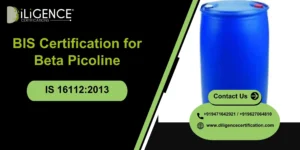

 BIS Certification
BIS Certification
 CDSCO
CDSCO
 CPCB
CPCB
 LMPC
LMPC
 WPC Approval
WPC Approval
 Global Approvals
Global Approvals
 TEC
TEC
 ARAI
ARAI
 BEE
BEE
 ISO Certification
ISO Certification
 Drone Registration
Drone Registration
 NOC For Steel
NOC For Steel



















 Business Registration
Business Registration















 Legal Services
Legal Services
 Trademark Registration
Trademark Registration
 Copyright Registration
Copyright Registration
 Patent Registration
Patent Registration
